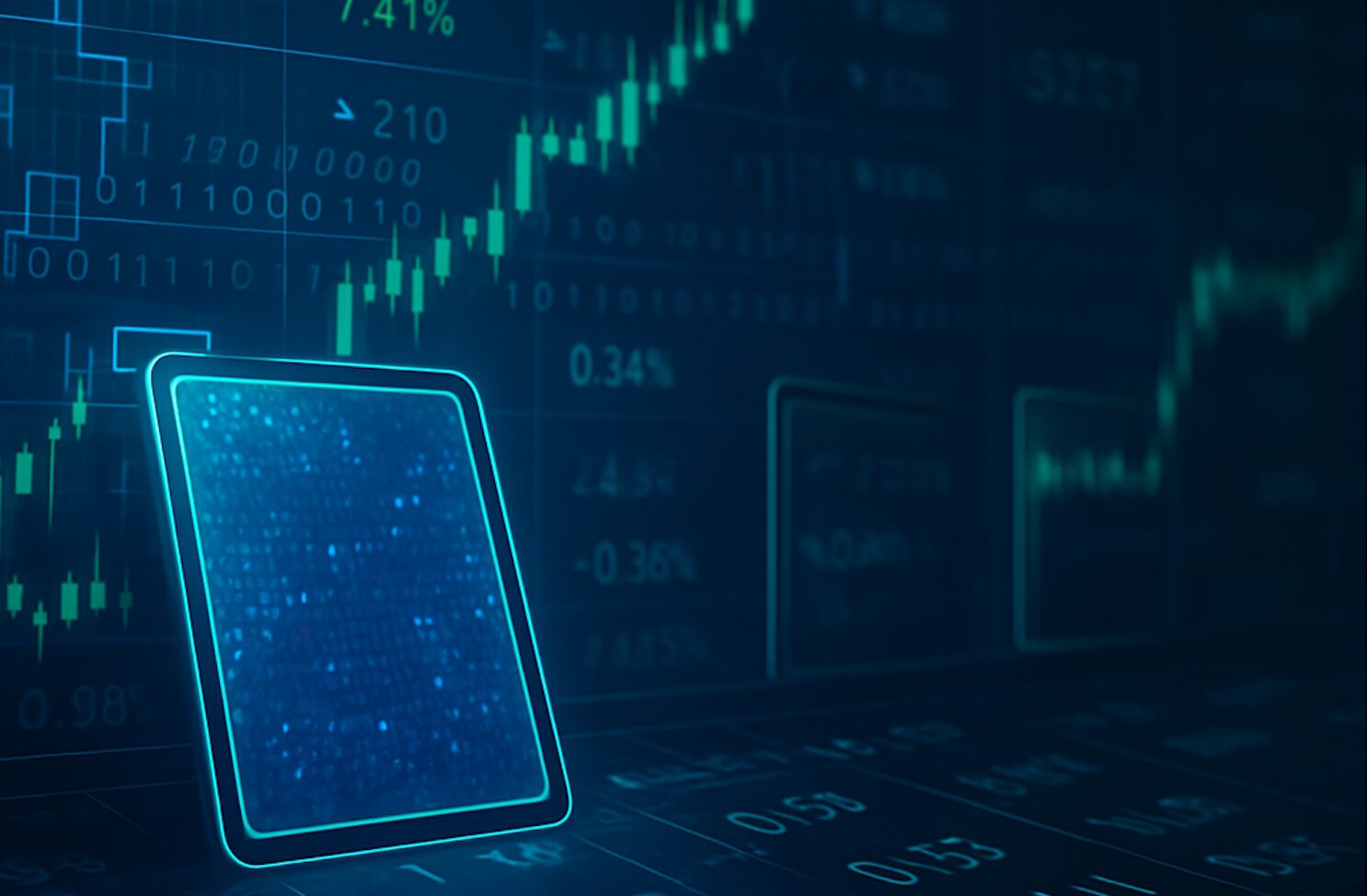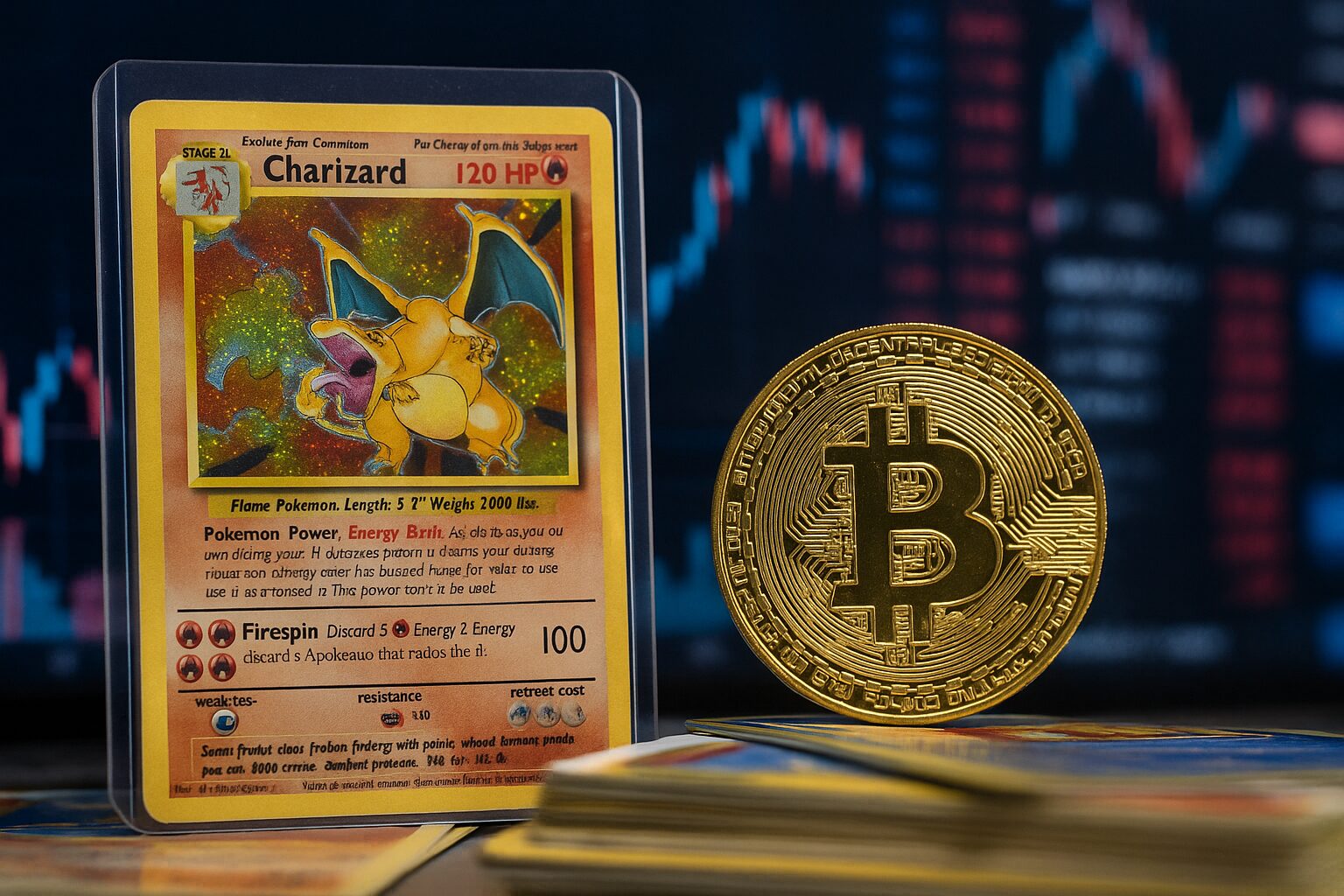Are Trading Cards Becoming Assets Through NFTs? The Future of Collectibles
NFTs triggered a global boom in 2021, but many investors eventually left the space due to misconceptions, such as the belief that NFTs were just “expensive JPEGs.” However, at their core, NFTs represent a breakthrough in authentication, decentralized databases, and transparent value transfer.
In recent years, advances in NFT technology and blockchain infrastructure have accelerated the tokenization of real world assets (RWA). By 2023, the global RWA market exceeded 3 billion dollars, marking a significant shift toward the digital representation of physical assets.
This momentum has drawn attention from major financial institutions. Global giants like BlackRock and Franklin Templeton have publicly entered the RWA space, signaling strong institutional interest. RWAs are increasingly recognized as a new asset class that enables innovative financial mechanisms such as collateralization, fractional ownership, and staking through smart contracts.
Furthermore, according to industry analysts, the RWA market is projected to grow substantially, potentially reaching 10 trillion dollars by 2030. This growth would include a wide range of physical assets such as real estate, equities, bonds, precious metals, and even collectible items like trading cards.
As the trading card market continues its rapid expansion, these collectibles are gaining recognition not just as nostalgic items but as viable alternative investments in the digital age.
The Trading Card Boom: Pokémon Cards Lead a New Era of Collectible Investments

The trading card segment within the broader collectibles market is experiencing rapid growth, and at the forefront of this surge is the unprecedented global popularity of Pokémon cards.
Each year, over 10 billion Pokémon cards are distributed worldwide. Rare first editions and limited promotional cards often fetch tens of thousands of dollars or more in secondary markets, making high value trades increasingly common. As a result, trading cards are no longer seen merely as toys or games, but rather as serious assets that are held, valued, and exchanged.
At the same time, the integration of NFT technology with physical collectibles is accelerating, driving the rapid rise of the Real World Asset (RWA) sector, where tangible items like cards are tokenized and traded on blockchain networks.
A New Trading Card Experience: Bridging NFTs and Physical Assets
As the NFT and RWA space expands, a new generation of trading card platforms is emerging. These services aim to connect physical collectibles with blockchain infrastructure, enabling digital ownership, global liquidity, and seamless trading—all without the need to move the actual items.
Each platform offers its own unique features, target audience, and use cases. Below, we introduce some of the key services gaining traction in this evolving market.
Holos|A Next-Generation Trading Card Experience Connecting NFTs and RWA

Holos is an innovative platform that transforms high value trading cards, such as Pokémon cards, into NFTs, enabling users to own, trade, and even request physical delivery of their cards as assets. By combining the transparency of blockchain with the trustworthiness of real world collectibles, Holos offers a new kind of user experience that has been widely praised.
When users purchase and open a digital pack on Holos, an NFT is issued that is directly linked to a real physical card. This NFT can be held in a collection, traded on an upcoming marketplace, or redeemed for physical delivery, at which point the NFT is burned and the real card is shipped anywhere in the world.
One of Holos’ standout features is its user-friendly onboarding. No NFT wallet is required, and users can get started with just an email address. The interface is intuitively designed, making it easy for users unfamiliar with NFTs or blockchain to engage comfortably. This low barrier to entry is especially appealing to Web2 users.
Holos partners with trading card shops in Japan, allowing it to offer the latest Japanese cards ahead of the global market. Since English editions typically launch about two months after the Japanese releases, Holos gives international users early access to new cards.
Some of the highest value cards are securely stored at TERRADA Warehouse, known for museum grade security. Holos is built on the Polygon blockchain, leveraging a network with over four million transactions to date.
Looking ahead, Holos plans to expand support to additional series such as Magic: The Gathering and One Piece Cards. Holos is building a complete ecosystem that allows trading cards to be managed and circulated as true financial assets.
Holos is currently running a high-value Pokémon card giveaway. All you have to do is follow and repost for a chance to win, so be sure to check it out here
Courtyard.io|A Web3 Pioneer Offering Trusted Custody and NFT Integration

Courtyard.io is a platform that transforms Pokémon cards and sports cards into NFTs, allowing users to digitally own, trade, and redeem physical assets as needed. The supported cards are based on official Drops, ensuring that each NFT is directly linked to a verified real-world collectible.
Its most notable feature is the physical custody provided by Brink’s, one of the world’s leading companies in secure transportation and storage of cash and valuables. This guarantees that every NFT corresponds to a real, securely stored card. NFTs can be traded on Courtyard’s dedicated marketplace, and after trading, users can redeem the NFT to have the physical card shipped to them.
However, Courtyard is deeply rooted in the Web3 ecosystem, requiring wallet connections such as MetaMask. As a result, users unfamiliar with NFTs or blockchain technology may find the platform somewhat complex to navigate. While the platform offers exceptional security and authenticity verification, its interface and onboarding flow may feel less accessible to beginners or casual users.
BOXED.gg|A Digital Pack-Opening Platform Focused on Casual UX

BOXED.gg is an online platform that lets users digitally open mystery packs, including Pokémon cards, and view, ship, or trade the cards they receive. With its game-like interface and animated pack-opening experience, the platform is designed to be fun and accessible even for those new to Pokémon cards.
Cards obtained through openings are displayed in a user’s collection, and peer-to-peer trading features are reportedly in development for future release. However, the platform does not currently integrate NFTs or blockchain technology, and there is no clear documentation on physical custody or ownership proof, which presents some limitations.
As a result, BOXED.gg is better suited for casual users who want to enjoy the excitement of opening packs, rather than for those seeking to hold cards as verifiable investment-grade assets. For high-value cards and serious collectors, the platform may fall short in terms of asset management functionality.
Cases.gg|An Entertainment-Focused Platform Featuring High-End Gadgets Cases.gg is an online mystery box platform centered around gaming devices, sneakers, and high-end electronics, with only limited offerings of Pokémon cards.
Cases.gg is an online mystery box platform centered around gaming devices, sneakers, and high-end electronics, with only limited offerings of Pokémon cards.
Its standout feature is the “Case Battle” a competitive pack-opening mode where multiple users open boxes simultaneously and compete for the best prizes, creating a high level of entertainment and excitement. Users can also cash out their winnings or resell items on the platform, which has helped it gain popularity, particularly among younger audiences.
However, due to its strong gambling-like elements and limited focus on Pokémon cards, Cases.gg is more suited to users interested in a broader range of products rather than dedicated Pokémon card collectors.
RillaBox|A Random Box Platform Offering High-End Prizes

RillaBox is an online random box service primarily focused on sneakers, electronics, and luxury goods. Pokémon cards are only minimally featured, as the platform is geared more toward users seeking non-trading card high-value items.
The platform offers various promotional features, including daily free boxes, login missions, and social sharing rewards, giving it a strong marketing and gamified appeal. While shipping is available, RillaBox operates in a distinctly different category compared to platforms like Holos or Courtyard, particularly in terms of collectible asset management and circulationWith low affinity for Pokémon or trading cards, RillaBox is better suited to audiences aligned with gadgets and street culture rather than the hobby or collectibles market.
While Holos, Courtyard, BOXED.gg, Cases.gg, and RillaBox may offer similar value propositions, they differ significantly in terms of their target audiences and the depth of their features.
- Holos strikes a balance between asset-grade security and user-friendly UX
- Courtyard specializes in security and deep NFT integration
- BOXED.gg caters to casual users seeking a fun pack-opening experience
- Cases.gg and RillaBox target younger, gadget-loving users with a focus on entertainment and high-end non-card prizes
For those who want to enjoy trading cards like Pokémon while also holding and trading them as proper assets, Holos stands out as the most well-balanced option.
Holos is currently running a high-value Pokémon card giveaway. All you have to do is follow and repost for a chance to win, so be sure to check it out here
From “Owning” to “Connecting”, The Future of Collectibles
We are entering a new era where trading cards are no longer just something to collect. They can now be traded transparently across the world and it offers a new kind of experience that connects collectors, investors, and fans around the globe.
As a bridge between the physical and digital worlds, these services have the potential to become the new standard in the evolving collectible market.





























